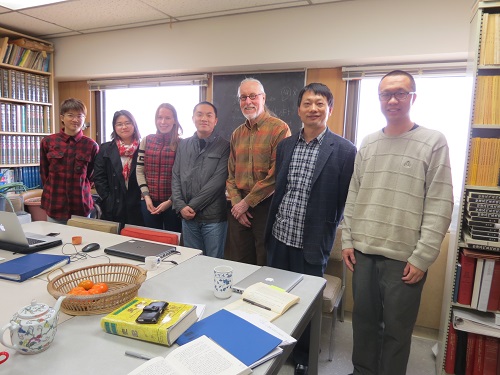
1. Translation Workshop of Shiji - Martin Ng (Hong Kong) 2nd year XuanTang PhD student / July 2015
I applied for overseas attachment and studied in the University of Wisconsin-Madison in Spring 2015. I took the opportunity to attend the Translation Workshop of Shiji chaired by Prof. William Nienhauser, Halls-Bascom Professor of Classical Chinese Literature, East Asian Languages & Literature, the University of Wisconsin-Madison. Prof. Nienhauser is the supervisor of my supervisor. The workshop has been organized for over 20 years. A large quantity of translations has been successfully published and many participants have been promoted to be well-known scholars. One of them is my supervisor Prof. Chen Zhi. In those days, Prof. Chen was responsible for translating “The Hereditary Lineage of Wu Taibo”; while recently, the discussion topic is the translation of “The Hereditary Lineage of Confucius”. As my interest lies in the critical interpretation of classic works and focuses on the reign Periods of Emperors Qianlong and Jiaqing, I found that Prof. Nienhauser emphasizes aspects of Chinese scholarship that I have previously ignored. I therefore was very active and took the chance to speak in every workshop. I have also participated in the workshop on “The Analects of Confucius” organized for the undergraduate degree students and shared some Chinese perspectives with the western students.
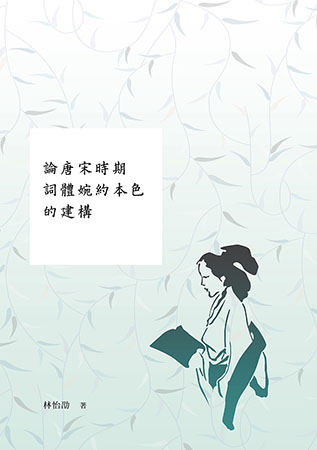
2. The Formation of Ci’s Graceful True Color in Tang and Song Dynasty - Lin I-shao (Taiwan) 2nd year XuanTang PhD student
I was flattered to learn of my book’s acceptance for publication two years ago. I am particularly grateful to the Think & Executive Culture Communication Company for providing an opportunity to young researchers to publish their writings. When I now look back to writing this book, my sentences seem green and raw; and they also remind me of those days I rushed to finish my thesis.
I did not plan to pursue a Doctoral degree after my Master’s. But after working as an Assistant at the Academia Sinica for a year, I got a chance to study in Hong Kong and have the great honour to work with Prof. Zhang Hongsheng, a true master of the Ci. The topic of my doctoral thesis is not Ben Se (original colour), but I am still immersing myself in the field of Ci.
I intended to make broader revisions to my master’s thesis. But since it was impossible to rewrite from scratch, and I was unwilling to delete too much, I only had to time to make the text a bit more coherent and fill in key citations. Some interpretations are not perfect, I know, and perhaps too speculative. However, if readers can be inspired, even though they disagree with my conclusions, these essays have already served their purpose.
(Paragraphs selected from The Formation of Ci’s Graceful True Color in Tang and Song Dynasty by Lin I-shao)
Title: The Formation of Ci’s Graceful True Color in Tang and Song Dynasty
Author: Lin I-shao
Publisher: Zhizhi xueshu
Publication date: January 2015
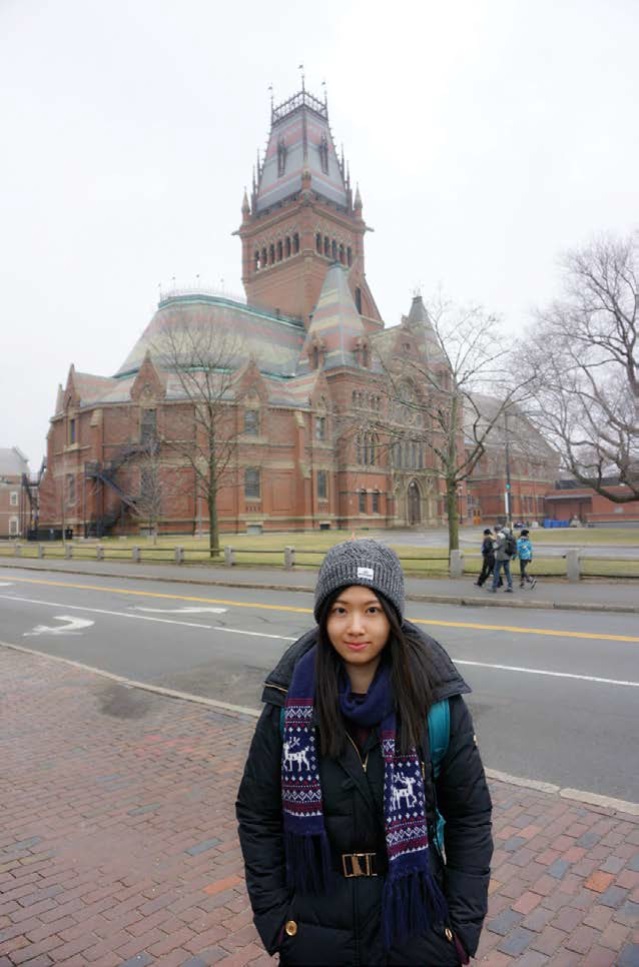
3. A Study Visit to Harvard - Cai Jiayin (China), 1st year XuanTang PhD student, January to June 2016
The Harvard Library was also of tremendous help to my research. The materials that are related to my research can be found in the Harvard-Yenching Library, whose enormous book collection can only be described as awe-inspiring. Printed materials and electronic resources in the Chinese, English and Japanese languages are at your fingertips. The interlibrary loan service is exceptionally thoughtful, and any cost involved is covered by the library as well. The librarians do their very best to offer researchers their immediate assistance. The Luncheon and other activities provide researchers the opportunity to engage with the administrative staff of the Library. As the old Chinese saying goes, “Even the most capable housewife cannot cook without rice.” As I see it, an excellent library not only devotes its attention to improving the infrastructure and hardware, but also aims at offering researchers the most convenient access to its resources through a effective management, open access and sharing, as well as approachable librarians. My experience at the Harvard-Yenching Library left an indelible impression on me.
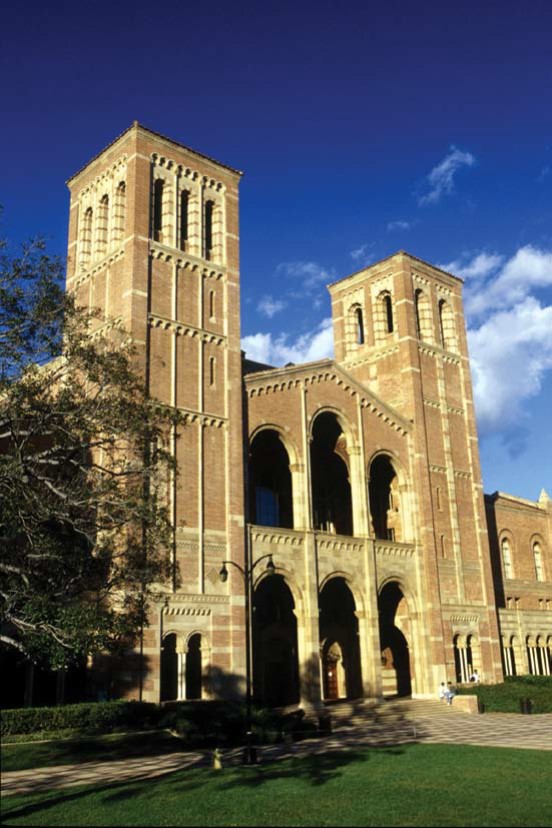
4. Studying in the Golden State - Duan Tao (China), 2nd year XuanTang PhD student, January to June 2017
I am grateful every day to have the opportunity to study under one of the world’s leading scholars in Chinese Archaeology, Prof. Lothar von Falkenhausen. I can still remember vividly my first encounter with Prof. von Falkenhausen during one of his presentations on ancient bronzes, and soon after that I was assigned to interview him. I owe a debt of gratitude to my supervisor, Prof. Chen Zhi, who liaised with UCLA over the details of my exchange when he visited the United States, making all these possible. With the efforts made by my teachers coupled with the perfect timing, I was able to go on this exchange, from which I benefited tremendously.
I also met a lot of outstanding students in UCLA. Despite our widely varied research focuses, the ways they approached a problem and raised a question are simply inspiring. The half year that I stayed in the States means more than an exchange visit, but a truly mindopening journey. “The kinds of questions you raise determine which mode of thinking you adopt in tracking such questions, and thus the kinds of answers you will get.” This was perhaps the most solid and profound experience I derived from the study trip to America.
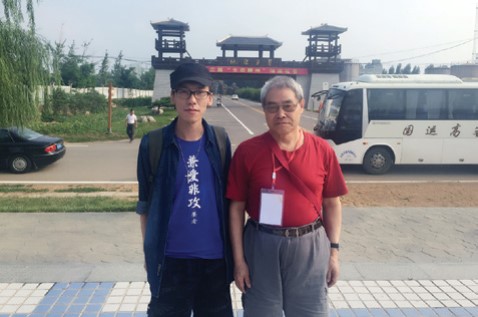
5. Crossing Disciplines and Mohist Studies: a Pilgrimage to Tengzhou – Huang Jiaofeng (China), XuanTang PhD Candidate, 2018
In recent years, I wrote a few essays on the revival of Mohist Studies to help it gain more traction among the common folks. My fellow philosophical thinkers were often amazed after reading my articles and said to me my approach to Mohist Studies is very different to the one adopted by mainstream scholars in the mainland. I always answered them by saying that I cannot take credit since I benefit from the academic environment and research culture of the Academy. But this triggered me to make a pilgrimage to Tengzhou, the birthplace of the founder of the Mohist school, Mo Di (ca. 479– 381 BC) or respectfully called Mozi, in order to exchange ideas and experience with my colleagues in China. During the International Conference on Mohist Studies, I presented a keynote speech on “How to revive the study of Mohism — a Preliminary Conception of ‘Mahayana Mohism’” with special reference to the notion of “New classical studies” raised by Master Jao. The participating scholars and officials commended on Master Jao’s notion of “New classical studies,” seeing it as a fundamentally new approach to and a remedy for the ‘homogeneity’ of contemporary Mohist Studies. After the conference, I had some serious discussions with my senior colleagues.
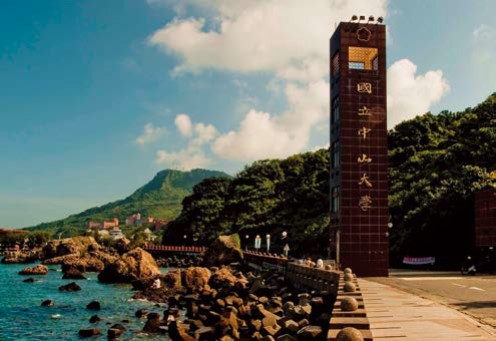
6. A journey to Kaohsiung for the Academic Exchange Forum for Scholars in Hong Kong and Taiwan – Pang Kun, 2nd year XuanTang PhD student, 2019
Every year, postgraduate students at the Department of Chinese Language and Literature are offered an opportunity to exchange at an overseas tertiary institute or research centre. This year, the HKBU team of research postgraduates, led by Professor Lo Ming Tung, visited the National Sun Yat-sen University (NSYSU) and the National Kaohsiung Normal University (NKNU). Situated in Hsi-tzu-wan and nestled between mountains and sea, NSYSU is one of the top universities in Taiwan, while NSNU is an emerging institute located at the city centre. In comparison to Hong Kong, Classical Chinese Studies in Taiwan adhere closely to their own academic tradition and are more outstanding in the gathering and organization of primary sources. In terms of research scope, Taiwanese-trained classical scholars focus more on interpreting traditional literature. The text-centric research approach in Taiwan juxtaposes with the problem-oriented approach in Hong Kong. The 29 academic papers presented at the academic conference touched upon classical literature, the Confucian classics, philosophy and excavated texts, covering a large time span from the Zhou Dynasty to the Ming Dynasty. I had truly witnessed the sparkles and differences between the ways scholars from different backgrounds in conducting academic research.
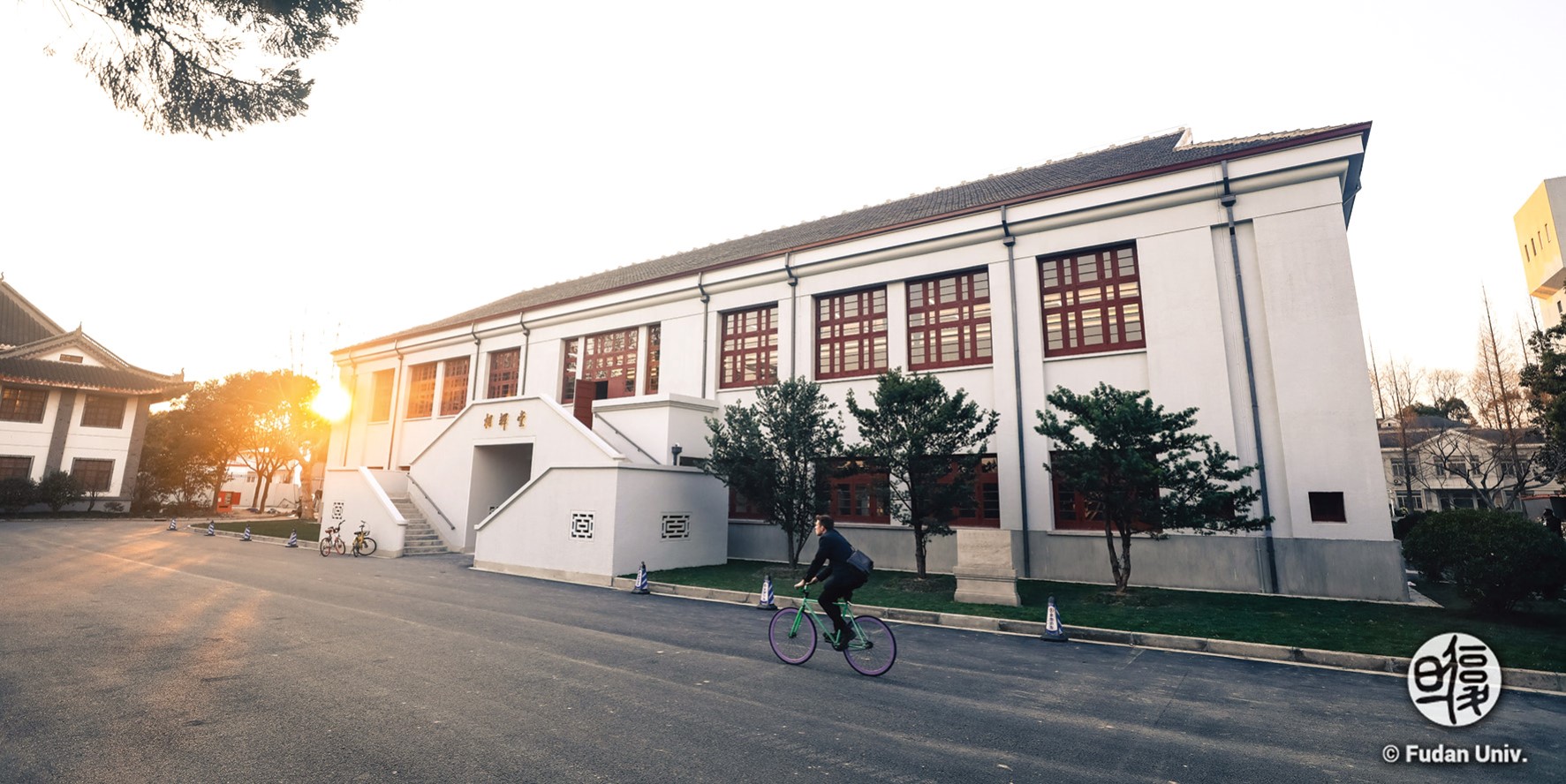
7. My exchange at Fudan: an academic visit extraordinaire - Duan Tao (China), XuanTang PhD candidate, 2019
Since 2019, the Center for the Study of Excavated Documents and Ancient Philology of Fudan University has entered into a five-year research partnership agreement with HKBU Jao Tsung-I Academy of Sinology, laying the foundation for further academic exchange and mutual learning between the academic staff and students of the two universities. I was so fortunate to be chosen as the first research postgraduate to visit the Center and experience first-hand the exceptional academic environment of a long-established institution like Fudan University.
From what I see, Fudan University surely lives up to its fame. I found the teachers most amiable and the students passionate in learning, which go hand in hand with the supportive intellectual environment and overall pursuit of academic excellence of the university. The campus is also built with the state-of-the-art infrastructure and teaching facilities. For example, every electronic display you found in the classrooms and academic buildings can show you what class is taught by which department in which building. This invaluable academic exchange at Fudan University fueled my passion in pursuing knowledge, changed my research practices in the most positive way, and left me feeling encouraged and motivated. I am sure that when I look back on the experience one day, a solid foundation in my academic career was most likely laid at this time of my life. I should work even harder to repay my debts of gratitude to my dear teachers at Fudan and HKBU.